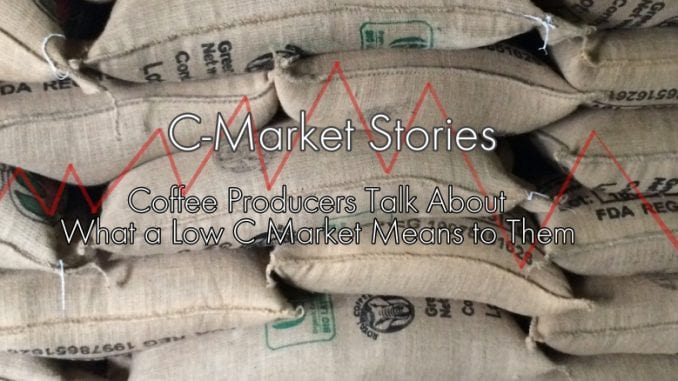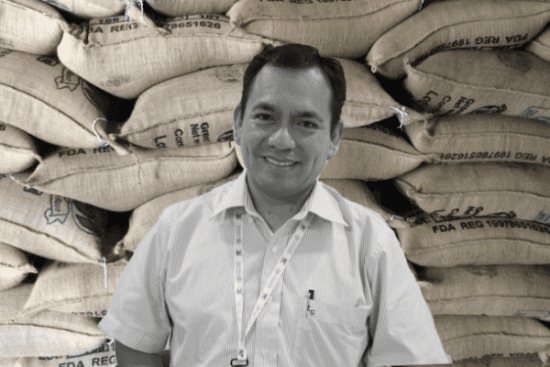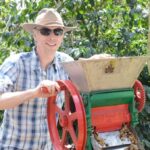
In this series on Barista Magazine Online, coffee producers talk about what a low C-market price means to them.
BY KENNETH R. OLSON
BARISTA MAGAZINE
The global commodity market for coffee has recently fallen to a 12-year low, dropping below $1.00/lb., and in many cases falling below the cost of production for coffee farmers. At the World Coffee Producers Forum in September, Roberto Velez, CEO of the Colombian Coffee Growers Federation (FNC), said, “It is today a desperate moment for the 25 million coffee growers around the world. It is a crisis beyond imagination.”
At the same event, Rene Leon Gomez, the executive secretary of Promecafe, which is based in Guatemala and represents many Central American coffee farmers, said, “I would say millions of producers in the region are desperate right now. A lot of farms are being abandoned, social conditions have deteriorated.”
With these dire warnings in mind, and with the well-being of coffee farmers and the future of our industry weighing heavily on our hearts, we wanted to talk to some specialty-coffee producers from around the coffee-growing world and ask them what a low C market means to them, how it affects their farms, and what kind of an impact the collapsing C has on their communities.
We have more coverage on the C market in the December 2018 + January 2019 Issue of Barista Magazine; Chris Ryan writes about the C market and why it’s important even to specialty producers in “A Volatile Presence: Understanding the C Market and How It Works.”
In this series, we hear directly from coffee producers about how the low C impacts them; in this installment, we talk with Javier Dominguez from Peru.

Javier Dominguez is the director of coffee at Sol y Café Co-op in Northern Peru. He says, “I am the son of a producer and grew up on coffee farms. I am very proud of that.” The co-op has 1,200 members and grows a number of crops, but their primary income comes from coffee production. The low C market has already had an impact on their community, according to Javier. “The economy depends on coffee, cacao, and rice,” says Javier. “[But] coffee makes up 60 percent of income.”
“The income from coffee is the motor that powers our community,” he says. “With less income from low coffee prices [it] affects everything in the community. People can’t send their kids to school or make improvements in their farms. Families are cutting back on the number of workers. People who used to hire five people will only hire three. That affects the community because there are fewer jobs.”
Fundamentally, Javier sees the role of the co-op as supporting its members—especially through tough times. “As a co-op, our goal is to improve the livelihood of the producers, and one of the main ways to do that is to improve income,” he says. “We are small producers with big ambitions. Our goal is to give the market what it’s asking for. Our goal for the coming years is to try to get over 50 percent of our coffees over [a score of] 85.”
“When we were creating a cooperative we looked at bees,” explains Javier. “They work together and not only produce honey, but they do a lot of good in the community. We work together to produce our honey, which is coffee, but like bees, we also have to do pollination and support the whole community. We’ll have to look to diversify and do more in addition to coffee.
“Similar to bees, if there are two or three bees they can be squashed, but if there’s a swarm, then the bees have the power. We have to see ourselves like that as producers. We can get more done if we all unite together,” Javier says.
He says the co-op has experience facing problems like the low C, and that they’ve learned from it. He says, “We have learned when faced with a crisis like the one we’re in now, we come back stronger and more resilient once we learn how to take it on.
And taking on a low C market to Javier means focusing more on specialty coffee. “The co-op bet on specialty coffee for income because if we’re doing that with conventional coffees it will fail. [With commodity coffee] the cost of production is high, and we sell so low. When buying specialty coffee, you’re helping pay for a better life.”
Javier explains that meeting coffee buyers in person has helped him and others from the co-op understand the value of the specialty coffee market. “Something we’ve learned from Let’s Talk Coffee [the event where this interview took place] is to go to the buyers to say the coffee has value—not just a crop value, but social value too, and there’s a price to pay to support that.
“I know the way economics work,” he continues. “Buyers want to buy when the price is low, and sellers want to sell when the price is high. We need to find a way to make balance and have everyone be happy with the result.”
One of the ways Sol y Café is trying to find that balance is with their Fair Trade certification. Javier says, “[There’s] a lot of value in Fair Trade not just because it provides a minimum price, but it helps with environmental, social, and political aspects. It impacts economy because farmers get better prices. It impacts social [aspects] because it gives producers better self-esteem and self-worth. They feel important and recognized. Before they kind of self-marginalized themselves.
“Going back to the bee example—one bee is not very powerful, but a whole bunch of them together are very powerful,” Javier says. “Once we united and worked together [with the co-op], we have more say in the government. We have roads, electricity, and more because we are more powerful when we work together.”
Javier and the members of Sol y Café believe they can weather the C-market storm because of their focus on improving quality, and he says, with the better quality they’re achieving, they can command better prices, no matter what the C market is doing, but that depends on coffee buyers also being willing to pay fair prices. “The product of Sol y Café is good quality,” he says, “and so what we want for producers is good quality of life. We’ll give you quality, and you give us quality of life.”

